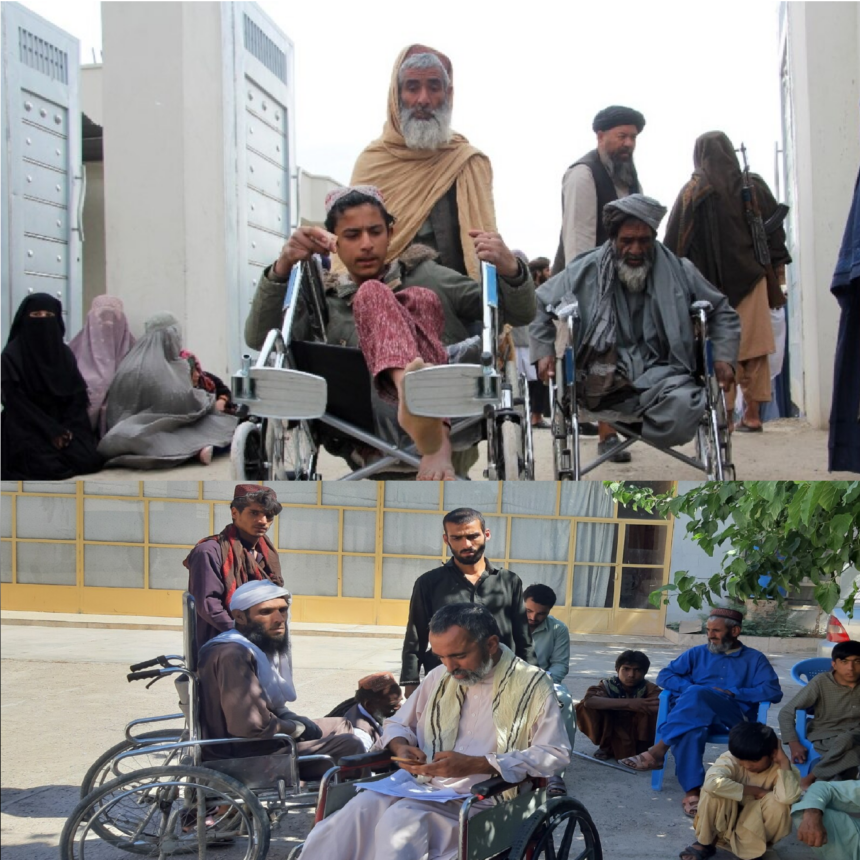RASC News Agency: The European Union Delegation in Afghanistan has reaffirmed that people with disabilities remain at the heart of its humanitarian and development agenda, describing their inclusion as “a moral imperative and a cornerstone of sustainable recovery.”
In a statement issued on Monday, November 3, to mark the International Day of Persons with Disabilities, the EU underscored its continued commitment to protecting Afghanistan’s most vulnerable groups individuals who, after years of conflict, poverty, and displacement, now face an even harsher reality under the country’s current regime.
The EU statement emphasized that addressing the needs of people with disabilities is integral to all its programmes in Afghanistan, particularly in the areas of livelihood support, healthcare, education, and employment creation.
“True recovery,” the statement declared, “cannot be achieved unless every individual, including those with disabilities, is given the opportunity to live with dignity, independence, and purpose. No nation can claim progress if it overlooks the rights of its most vulnerable citizens.”
According to the EU delegation, its initiatives go beyond emergency relief and aim to build durable systems that empower people with disabilities to become self-reliant. The EU has invested in strengthening rehabilitation and prosthetic centres across the country, ensuring that vital services such as physiotherapy, orthopaedic care, and psychosocial counselling remain accessible to those in need.
While the European Union continues to deliver targeted humanitarian assistance through its network of trusted local and international partners, the situation inside Afghanistan remains dire. Since the Taliban’s return to power in 2021, much of the nation’s social service infrastructure has deteriorated or ceased operation. Many rehabilitation and vocational training centres once supported by international NGOs have been forced to close, either due to lack of funding, restrictive governance, or security challenges.
Thousands of Afghanistanis living with disabilities many of them war victims, landmine survivors, or children affected by chronic malnutrition now struggle to access even the most basic medical and educational services.
Humanitarian observers report that the absence of a coherent national policy, coupled with the regime’s poor administrative capacity, has left large segments of this vulnerable population invisible and unsupported.
In contrast to politically motivated or poorly managed local initiatives, the European Union has pledged to ensure that its assistance reaches beneficiaries directly and transparently. The delegation reaffirmed that its support will continue through non-governmental organizations, community-based networks, and independent service providers, rather than through state-controlled structures that have repeatedly failed to deliver.
“The EU remains determined to uphold its humanitarian principles,” the statement said. “Our aim is to restore hope, not dependency; dignity, not charity.”
Officials in Brussels confirmed that part of the EU’s funding is allocated to enhancing professional training for rehabilitation workers and to developing inclusive education programs that enable children with disabilities especially girls to return to classrooms that are safe and accessible.
Independent human rights groups warn that Afghanistan is witnessing a silent humanitarian crisis, in which people with disabilities face systematic neglect, compounded by deepening poverty and the absence of inclusive policy frameworks.
“The international community must not allow Afghanistan’s disabled population to vanish from global attention,” said a Kabul-based aid worker speaking anonymously due to security concerns. “They are among the first to be forgotten, yet they are the truest measure of our collective humanity.”
Through its renewed focus on disability inclusion, the European Union sends a wider message: that even amid isolation and instability, humanitarian principles must not yield to political expediency. The EU’s continued engagement represents not only a lifeline for millions of Afghanistanis but also a quiet act of defiance against the governance failures that have plunged the nation into despair.
By placing persons with disabilities at the centre of its programmes, the European Union reaffirms that compassion, dignity, and inclusion remain the essential building blocks of any nation’s recovery and that Afghanistan’s future, no matter how uncertain, must not leave its most vulnerable behind.






